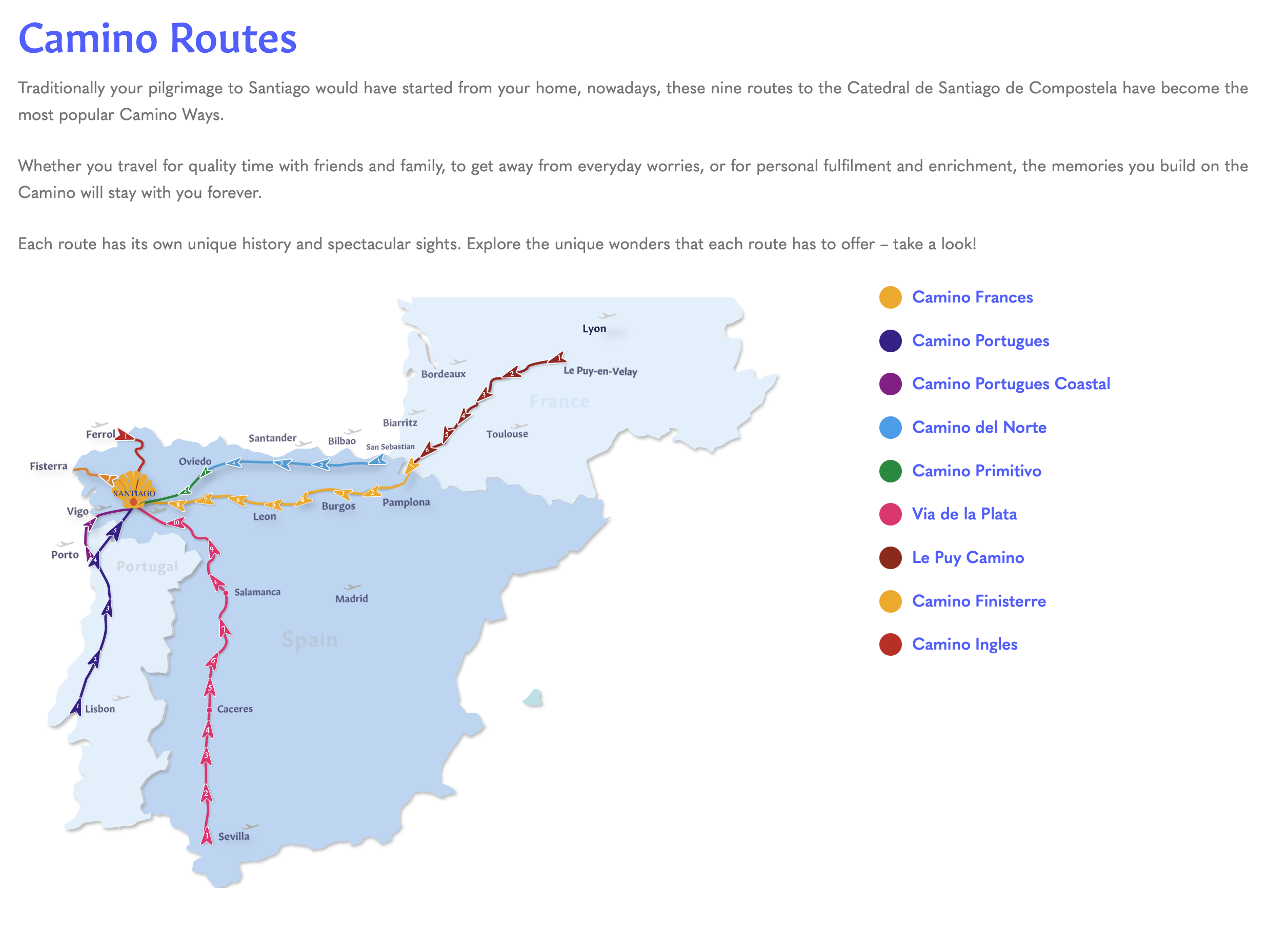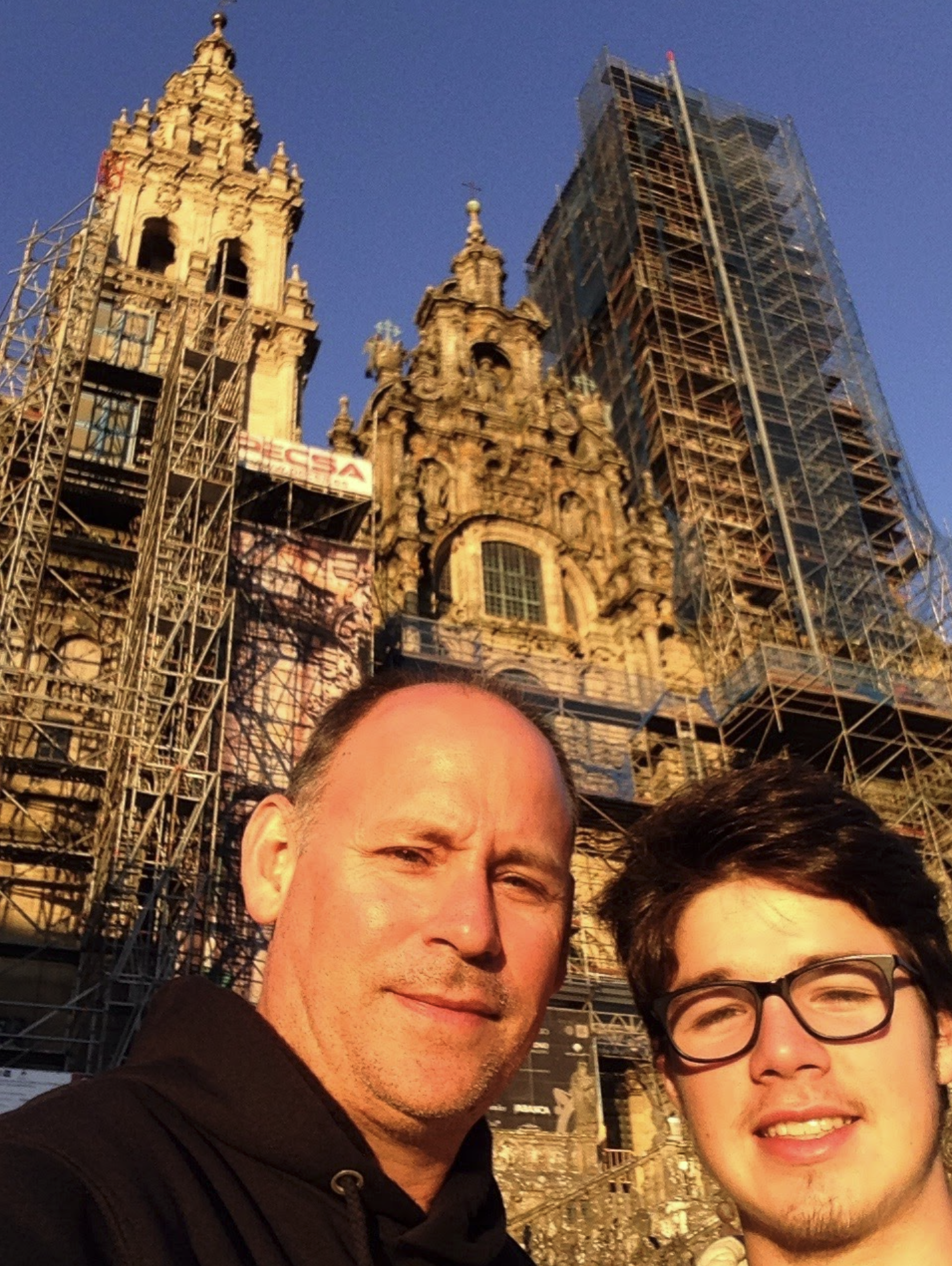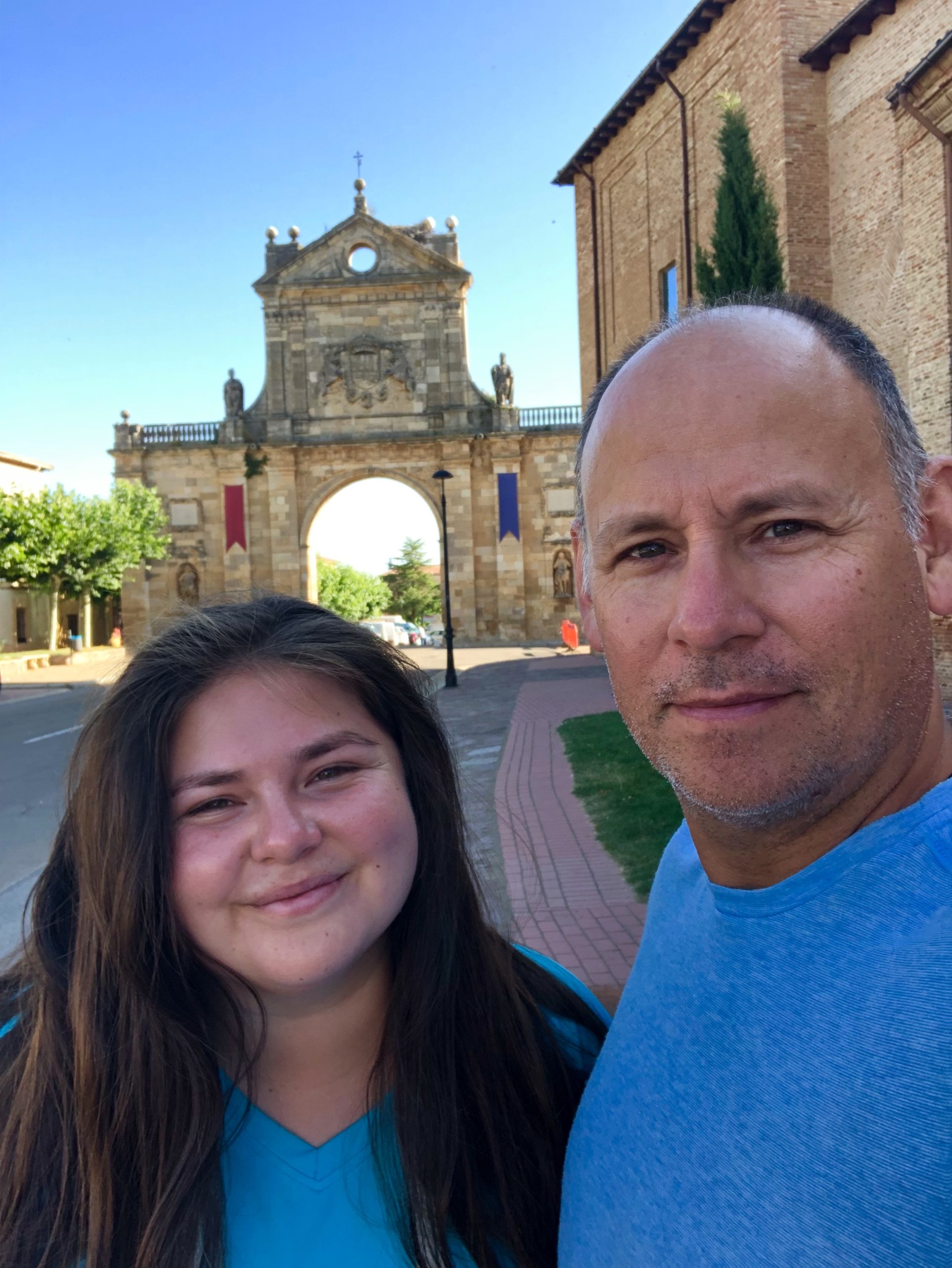“…and just when you think you’re done climbing, there’s always another hill.”

He calls it a metaphor for life. A concept that, as today’s stranger-now-friend Chava reveals his story, is an idea that hits me deeply as I reflect on the years of my existence.
“There are days that you think are impossible, and then there are days that you couldn’t be happier…” Chava begins.
“…and just when you think you’re done climbing, there’s always another hill. You realize how little you need to live a happy life, because you’re carrying everything with you. You find out that at the end of the day it’s all about people.
Everybody gets along because we all have the same goal. Right? You could do it for religious reasons. You can do it for physical exercise. You can do it just because you need to meditate.”
So what exactly is the it Chava is speaking about? And in that it, why did he walk 500-miles in which he left his phone at home? A trek where he pushed off his stress, disengaged from his comfortable world, and carried only one responsibility with him—that being: His teenage son who chose to join him on the journey.
They call it: Camino de Santiago—and on it, a path labeled The French Way. An experience that, passing through Pamplona, Logroño, Burgos, and León, covered footpaths dating back to ancient pilgrimages. A decision brought on by a moment of life analysis, and one that has now reframed the way Chava currently looks at all things. And as I better get to know him, it is not hard to see the refreshed man he is.
So I sit here and write—my room window open, and ambient iTunes playing, as I do my best to honor my pledge of transparency: Doing what I can to be entertaining and vulnerable as I author this daily blog. An effort I tribute to you by revealing both my whys and whys shared as we seek a more collective answer to the same.
Chave speaks of his kids and the experience they shared on the Camino.
“It’s a beautiful thing if you ever find yourself in a place where it seems that you can make sense of it all.”

“We may not have the time with our kids that we think we have. So the first Camino was very very somber, but very uplifting at the end when I walked with that one with my daughter. The second time I walked it with my son and it was just the opposite. It was very joyful.”
He returns to his Metaphor for life, “you know, but it’s a beautiful thing if you ever find yourself in a place where it seems that you can make sense of it all.”
A feeling he recalls as he thinks back to June 2011—the starting day of his first Camino walk.
“We started walking and after the first day, I thought it was a mistake. It’s like, I’m not going to make it this! It’s awful! It was painful. It was the first day. It was just straight climbing, and the next day it was straight down. I had blisters. My back was hurting. My feet were hurting. But there’s this other thing. I think it’s probably one of the most beautiful things about the Camino. That is, you experience all these traditions and rituals and stuff, you know, and one of them is you have to take a rock from where you live. I remember I took a rock from my yard. It was with me throughout the hike, and as you walk, you transfer all the bad juju and regrets into it. All of the emotional garbage you have you just transfer into the rock.
I remember walking up a hill in a swampy area. Then you turn, and there it is. It has a wooden pole on top, and that’s where you leave the rock. With it, all the emotional garbage that you have been carrying with you.
When I dropped mine, I started getting very emotional as I looked at the hill and realized it was not a natural formation. It is a hill made up of all the rocks that people have been dropping there for 1200 years.”

“I know this sounds hoaky, but it was like I found the purpose of my life, you know? And that wasn’t why I chose to do that walk. It was more like a why that was chosen for me—and I just went along for the ride.”
So Chava left his past hurts on a mountain of unknown pains. A gesture that, regardless if left on stones at the Camino, or discarded in our own ways, allows each of us the same freedom—the gifts of healing, forgiveness, and the realization of the worth of a human being.
“I know this sounds hoaky,” Chava tells me, “but it was like I found the purpose of my life, you know? And that wasn’t why I chose to do that walk. It was more like a why that was chosen for me—and I just went along for the ride.
The thing is, we try to control all the things. The I’m going to go there. I’m going to do this, and the shit that happens. And it’s almost like the Camino says: No, you’re not the one in charge here. You know, you’re going to do things, and things are going to happen according to what I have planned. And for me, I learned that you just have to give in, and when I did, I was giddy stupid. I completely forgot about everything. All that I had planned and without a doubt every time there was a challenge I hadn’t anticipated, the outcome or the improvisation we did got us through. And it was way more than what I had planned for. That’s what I mean by it’s like a Metaphor for life.”
I ponder the title of the journey Chava traveled. Pause my intellectual self and listen beyond me to understand the big why as it applied to the El Camino—translated to English: The Way.
It’s beginning to rain outside, and as I stand up to close the window, it hits me: A higher recognition of the lessons learned and taught by Chava. Even a look at a possible whys, or the ways, we are each facing in our unique pilgrimages—and at the base of this finding, I can only find one constant. Symbolically, yet another mountain of stone that, still in the making, has the foundation to carry so many of us.
A simple fact that we each have hidden rocks, even a revelation to direct us in more compassionately viewing those around us. A choice that most likely has not been made on 500 miles of open trail but is one that we still can equally travel.
So to Chava, thank you for all you have shared and for the person in whom you are becoming.
Talk tomorrow my good friends,
Richard



Thank you, compadre. This is so nice.